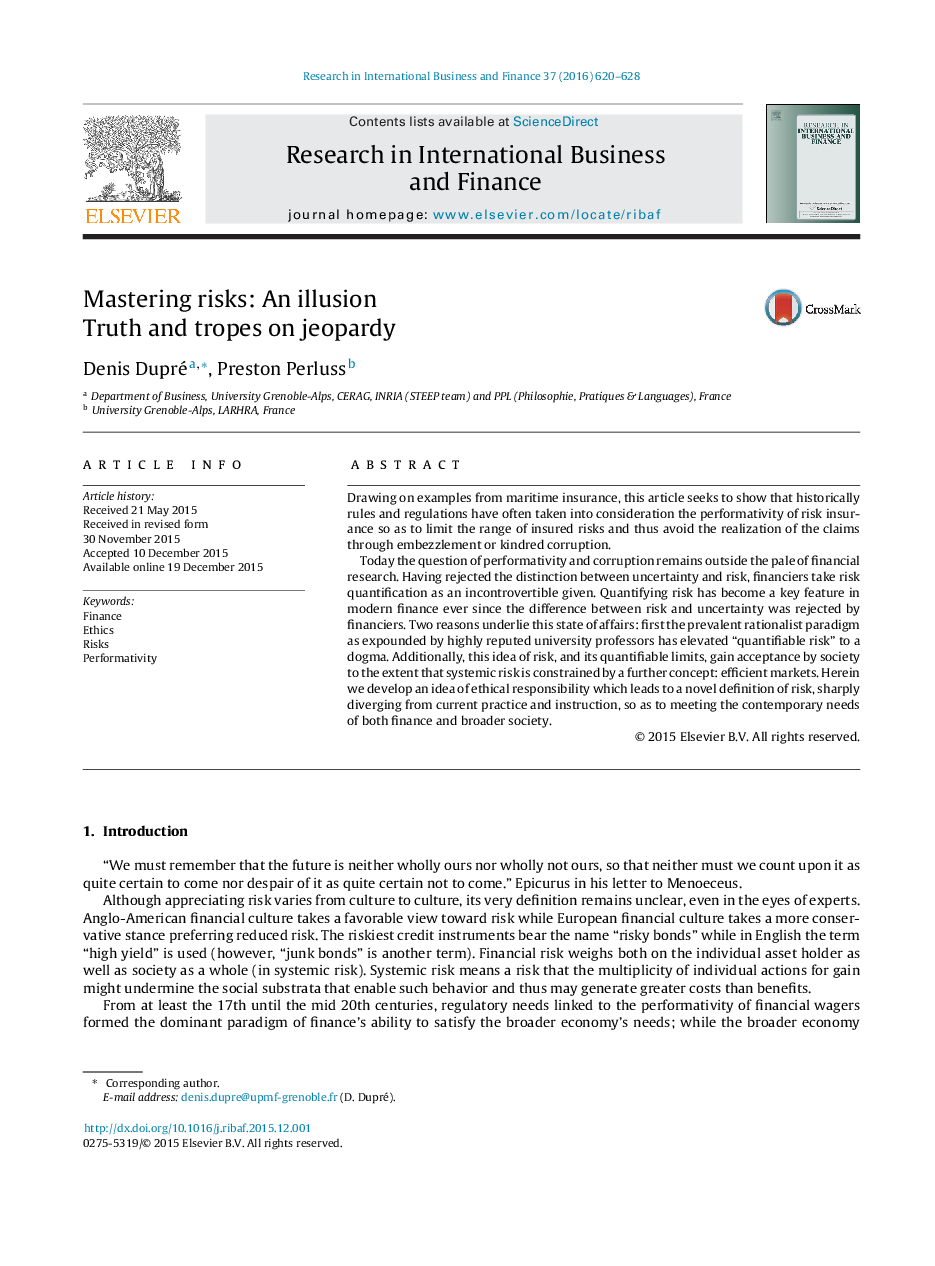| Article ID | Journal | Published Year | Pages | File Type |
|---|---|---|---|---|
| 1003089 | Research in International Business and Finance | 2016 | 9 Pages |
Drawing on examples from maritime insurance, this article seeks to show that historically rules and regulations have often taken into consideration the performativity of risk insurance so as to limit the range of insured risks and thus avoid the realization of the claims through embezzlement or kindred corruption.Today the question of performativity and corruption remains outside the pale of financial research. Having rejected the distinction between uncertainty and risk, financiers take risk quantification as an incontrovertible given. Quantifying risk has become a key feature in modern finance ever since the difference between risk and uncertainty was rejected by financiers. Two reasons underlie this state of affairs: first the prevalent rationalist paradigm as expounded by highly reputed university professors has elevated “quantifiable risk” to a dogma. Additionally, this idea of risk, and its quantifiable limits, gain acceptance by society to the extent that systemic risk is constrained by a further concept: efficient markets. Herein we develop an idea of ethical responsibility which leads to a novel definition of risk, sharply diverging from current practice and instruction, so as to meeting the contemporary needs of both finance and broader society.
